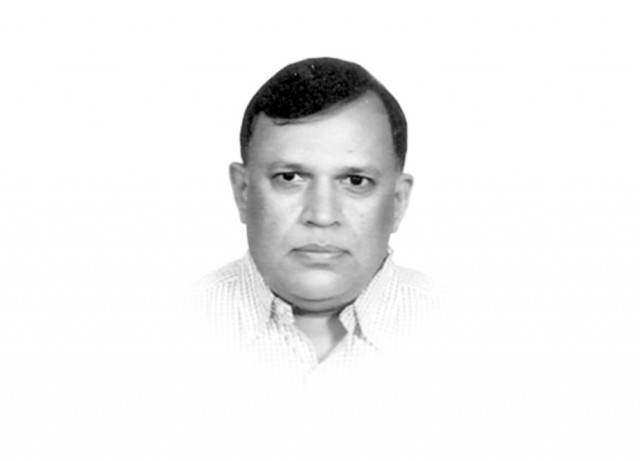Malik Barkat Ali’s role in the freedom struggle
Malik Barkat Ali was a close confidant of Allama Iqbal, who campaigned for his election in January 1937

The writer retired from PIA in 2008 after 33 years of service and is the grandson of the late Malik Barkat Ali
Barkat Ali was a close confidant of Allama Iqbal, who campaigned for his election in January 1937, when Punjab was ruled by Sikandar Hayat’s Unionist Party, in coalition with Hindus and Sikh Khalsa. He won in the eastern districts of Jullundur, Ferozepur, Hoshairpur and Kasur. He was returned unopposed in the 1945-46 elections, when the Muslim League won 453 out of the 524 Muslim seats, bagging 90 per cent of the seats in Punjab. In the 1937 elections, only two Muslim Leaguers — Malik Barkat Ali and Raja Ghazanfar — were elected, but Raja defected to the Unionist Party and for eight years, Malik Barkat Ali alone represented the League in Punjab’s legislature.
After completing an MA in English, he started his career in 1905 as an assistant professor of English at FC College, Lahore, followed by a brief stint in government service as a treasury officer, from which he resigned in January, 1914, and started working as the editor of the weekly Observer in April. Events in Turkey after the First World War, followed by a clampdown on Muslims by the Raj, had an impact on Punjab politics. Malik Barkat Ali came in contact with Allama Iqbal and Muhammad Ali Jinnah. His editorials in support of Muslims irked then governor of Punjab, Michael Francis O'Dwyer, who, on June 18, 1918, imposed a ban for the time he remained editor. The proprietors chose to cease publication. Having completed his LLB in 1916, Barkat Ali joined the legal profession as a lawyer in January, 1920, and was now actively involved in league politics.
The foundations of the Muslim League were laid on December, 1906, in Dacca, by Waqar-ul-Mulk and Jinnah formally joined on October 10, while still in London. At the 1915 annual session held in Bombay, a 71-member committee was formed, which included Jinnah, the Agha Khan, Raja Mehmoodabad, Fazalul Haq, Malik Barkat Ali and others. The 1916 Lucknow session was presided over by Jinnah and by 1923, communal tensions between Muslims and Hindus heightened. Barkat Ali, along with Mian Abdul Aziz, Pir Tajuddin and others, represented Muslim point of view, while CR Das, Motilal Nehru and Maulana Azad represented the Congress.
Barkat Ali attended the annual sessions sessions held in Bombay, Aligarh and Delhi, in 1924, 1925 and 1926, respectively. He was an ardent admirer of Allama Iqbal, who, in his presidential address at the annual session held in Allahabad in 1930, had equivocally put forth his personal opinion that the destiny of the Muslims of North Western India, lay in forming a separate state comprising Punjab, Sindh, the Frontier and Balochistan — although, till this time, it was not yet an official policy of the Muslim League. After Jinnah’s visit to Lahore in 1936 and his meeting with Iqbal on May 1, the Punjab Muslim League was reorganised, electing Allama Iqbal as president and Barkat Ali and Khalifa Shujauddin as vice presidents, with Ghulam Rasool as secretary and Ashiq Batalvi as joint secretary.
Barkat Ali had very close relations with the Quaid, who valued his political and legal advice, even on personal matters, such as the issue of his residence, bought in Lahore Cantonment, which was acquired under the Defence of India rules in 1945, as per official documents released by Syed Shamsul Hassan, office secretary of the Muslim League.
Published in The Express Tribune, April 5th, 2016.
Like Opinion & Editorial on Facebook, follow @ETOpEd on Twitter to receive all updates on all our daily pieces.















COMMENTS
Comments are moderated and generally will be posted if they are on-topic and not abusive.
For more information, please see our Comments FAQ